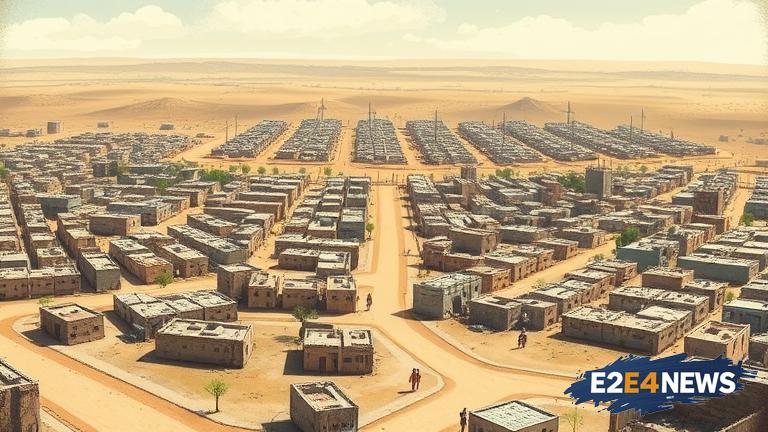The Israeli government has recently unveiled a plan to establish a new city in the Rafah area, which has sparked intense debate and controversy. The plan, dubbed the Rafah plan, aims to provide a safe and secure environment for Palestinians, but critics argue that it is merely a euphemism for a concentration camp. Proponents of the plan claim that it will provide much-needed housing, employment, and infrastructure for the local population, while opponents argue that it is a thinly veiled attempt to exert control over the Palestinian people. The plan has been met with widespread criticism from human rights organizations and Palestinian leaders, who argue that it is a violation of international law and an attempt to annex Palestinian land. Despite the controversy, the Israeli government has vowed to push forward with the plan, citing security concerns and the need to protect its citizens. The Rafah plan has also sparked concerns about the potential for human rights abuses, with many fearing that it will lead to the displacement of Palestinians and the erosion of their rights. The plan has been likened to a concentration camp by some, with many drawing comparisons to the infamous Gaza Strip. The Israeli government has denied these allegations, claiming that the plan is purely humanitarian in nature. However, the lack of transparency and consultation with Palestinian leaders has only added to the skepticism surrounding the plan. As the situation continues to unfold, it remains to be seen whether the Rafah plan will be implemented and what the consequences will be for the Palestinian people. The international community has been urged to take a closer look at the plan and its potential implications, with many calling for a thorough investigation into the matter. The United Nations has also weighed in on the issue, expressing concerns about the potential for human rights abuses and the need for a peaceful resolution to the conflict. Despite the many concerns surrounding the plan, the Israeli government remains committed to its implementation, citing the need to protect its citizens and maintain security in the region. The Rafah plan has also sparked a wider debate about the Israeli-Palestinian conflict, with many arguing that it is a symptom of a larger problem. The plan has been seen as a reflection of the deep-seated tensions and mistrust between the two sides, with many fearing that it will only serve to exacerbate the situation. As the conflict continues to simmer, it remains to be seen whether the Rafah plan will be a catalyst for peace or a recipe for disaster. The international community will be watching closely as the situation unfolds, with many hoping that a peaceful resolution can be found. The fate of the Palestinian people hangs in the balance, and it is imperative that their rights and dignity are respected and protected. The Rafah plan has the potential to be a major turning point in the conflict, and it is crucial that it is approached with caution and sensitivity. The world will be waiting with bated breath as the situation continues to unfold, hoping that a peaceful and just resolution can be found.
